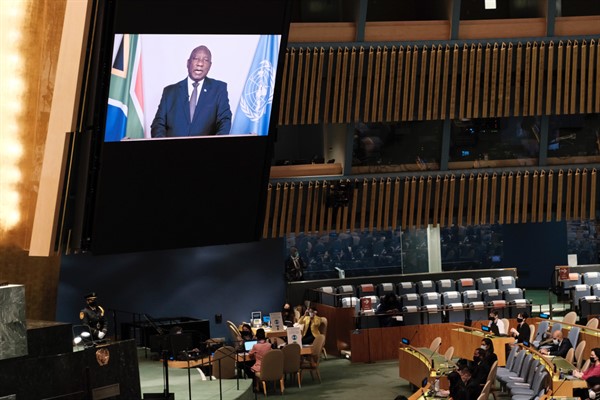Russia’s invasion of Ukraine, and the reaction it has drawn from the United States and the European Union, has been described by many observers as having “revitalized the liberal international order,” as Kori Schake of the Washington-based American Enterprise Institute wrote in The Atlantic. Ivo Daalder, the president of the Chicago Council on Global Affairs and a former U.S. ambassador to NATO, tweeted that “the West isn’t weak, divided or declining after all.”
Other commentators have drawn similar conclusions following the stronger-than-expected response on both sides of the Atlantic to Russia’s incursion into Ukraine. But many observers outside the core countries of the international system, Africans included, have little enthusiasm for the West’s desire to involve them in a conflict they regard as peripheral to their concerns. Nor do they have much sympathy for a world order that has historically relegated Africa to a marginal place within the international system and imposed considerable costs on its nations, while demanding their unflinching loyalty toward its stated aims.
This U.S.-led order, its proponents argue, has brought unprecedented stability, peace and prosperity to the world since 1945, despite threats posed by adversaries like the Soviet Union and later Russia, and more recently China. An unintended consequence of Putin’s march into Ukraine, they argue, is the reinvigoration of what is often described as a rules-based system that enshrines norms like multilateralism, and is shored up by alliances like NATO and institutions like the United Nations and the EU. But this order has been regarded by many in the Global South, including Africa, as a framework that reflects and advances the interests and preferences of a narrow group of nations—most prominently the U.S. and its European allies, and more recently the rich, industrialized countries of Asia.

